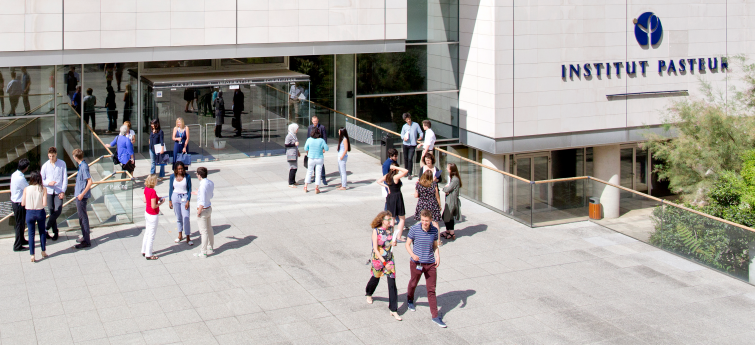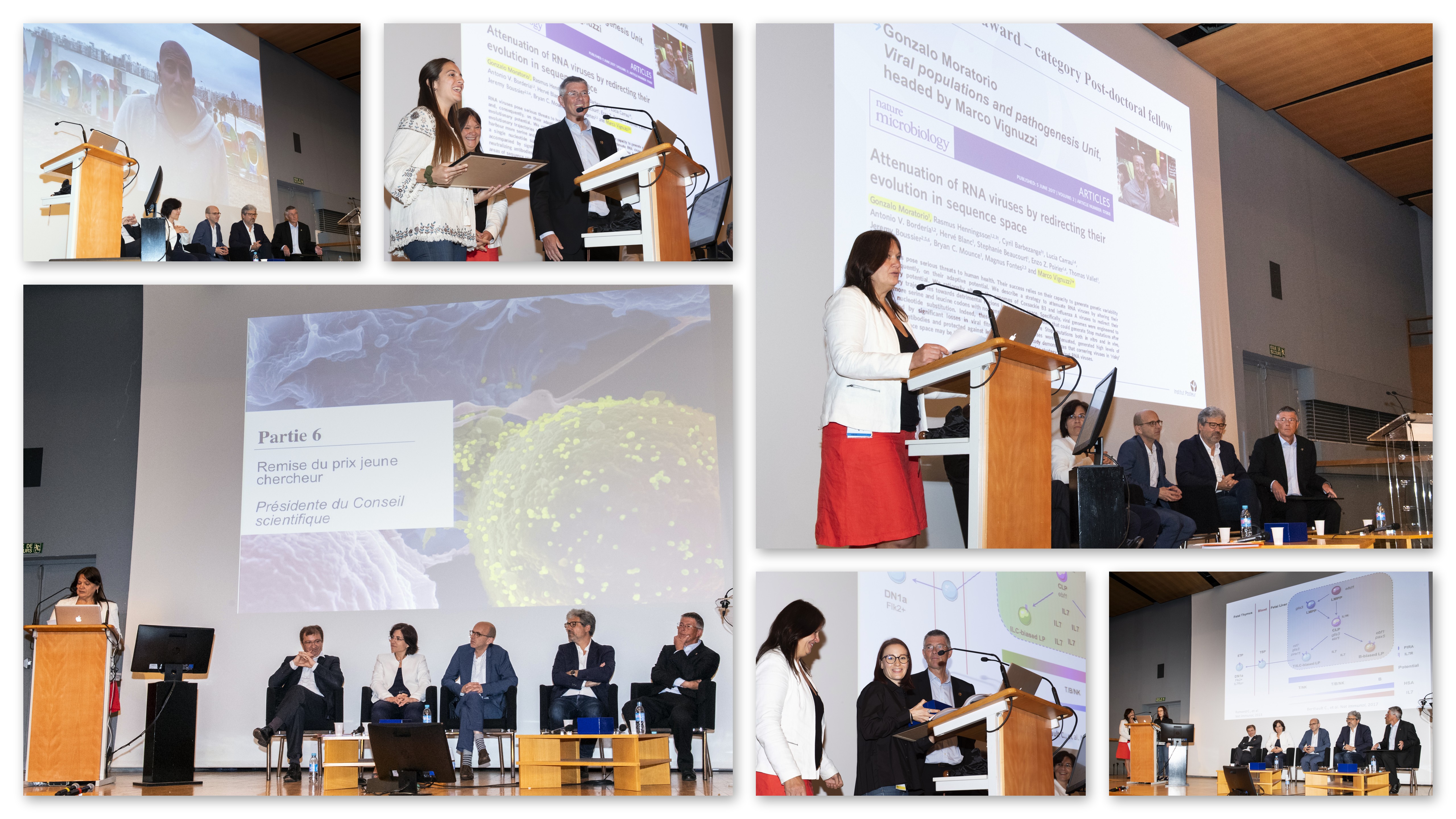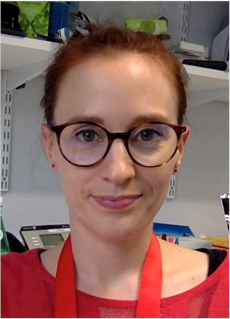
 meeting
meeting
Look back at the staff general meeting on June 12, 2018
The general staff meeting was held on the morning of Tuesday June 12 in the CIS auditorium.
The event, open to all staff, began with an introduction from Stewart Cole. This was followed by a presentation of the new organizational structure for the scientific management team and information about various scientific and financial aspects that are particularly relevant to all Institut Pasteur staff, in anticipation of preparations for the 2019-2022 strategic plan. The financial report was also presented in detail, together with some general reflections on how to improve the financial balance in future.
A document containing the addresses given by Stewart Cole, President, Olivier Schwartz, Scientific Director, Christophe d'Enfert, Vice-President Technology and Scientific Programs, François Romaneix, Senior Executive Vice-President Administration and Finance, and Corinne Fortin, Vice-President Financial Affairs, is available to download.

In the second part of the meeting, a prize-giving ceremony was held for the winners of the first ever edition of the Institut Pasteur Young Researchers Award. The winning researchers were Claire Berthault, a PhD student in the Lymphopoiesis Unit directed by Ana Cumano, and Gonzalo Moratorio, a post-doctoral fellow in the Viral Populations and Pathogenesis Unit directed by Marco Vignuzzi. This award, presented by Carmen Buchrieser, Chair of the Institut Pasteur Scientific Council, was introduced by the general management team to mark the Institut Pasteur's 130th anniversary. It recognizes outstanding fundamental research with a major clinical interest. The two laureates were chosen by a jury of seven leading international scientists.

Summary of Gonzalo Moratorio's research
 RNA viruses, like influenza viruses, have broad genetic variability, which gives them a high adaptive potential. As part of the fight against RNA viruses, research by Gonzalo Moratorio, within the unit of Marco Vignuzzi, consisted in altering their future. Along with colleagues from Lund University (Sweden), they succeeded in altering the genomes of an enterovirus and an influenza virus, thereby reducing their ability to reproduce and be virulent. This method of vaccine design is innovative, targeted and highly precise. (Find out more)
RNA viruses, like influenza viruses, have broad genetic variability, which gives them a high adaptive potential. As part of the fight against RNA viruses, research by Gonzalo Moratorio, within the unit of Marco Vignuzzi, consisted in altering their future. Along with colleagues from Lund University (Sweden), they succeeded in altering the genomes of an enterovirus and an influenza virus, thereby reducing their ability to reproduce and be virulent. This method of vaccine design is innovative, targeted and highly precise. (Find out more)
Summary of Claire Berthault's research
 We have shown that progenitors of T lymphocytes need to mature and restrict their differentiation potential to the T/innate lymphoid cell (ILC) lineages before reaching the thymus, in the embryo (Berthault C. et al Nat Immunol. 2017). The number of these restricted lymphoid cells is regulated by the availability of interleukin 7 (IL7) in the fetal liver environment. Thus, at earlier stages of embryonic development low amounts of IL7 produced in the fœtal liver, allow the development of these T/ILC restricted progenitors. They then colonize the thymus where they give rise to particular T cell populations that are only produced in the embryo and that rather than recognizing exogenous antigens are more important to ensure tissue homeostasis and regulate the immune response of conventional lymphocytes (Ramond C., et al, Nat Immunol, 2013).
We have shown that progenitors of T lymphocytes need to mature and restrict their differentiation potential to the T/innate lymphoid cell (ILC) lineages before reaching the thymus, in the embryo (Berthault C. et al Nat Immunol. 2017). The number of these restricted lymphoid cells is regulated by the availability of interleukin 7 (IL7) in the fetal liver environment. Thus, at earlier stages of embryonic development low amounts of IL7 produced in the fœtal liver, allow the development of these T/ILC restricted progenitors. They then colonize the thymus where they give rise to particular T cell populations that are only produced in the embryo and that rather than recognizing exogenous antigens are more important to ensure tissue homeostasis and regulate the immune response of conventional lymphocytes (Ramond C., et al, Nat Immunol, 2013).
At later stages of embryonic development, when increasing amount of IL7 are produced by the fetal liver stroma, the T/ILC restricted progenitor population can no longer be detected, and the lymphoid progenitor compartment is composed if B-biased or ILC-biased progenitors. The thymus is then colonized by a population of multipotent progenitors that generate large numbers of conventional T cells but cannot produce the embryonic innate like T lymphocytes. Our work establishes that the first wave of lymphocyte progenitors is poised to produce innate-like lymphoid cells. (Asynchronous lineage priming determines commitment to T cell and B cell lineages in fetal liver. Berthault C. et al Nat Immunol. 2017)
Following on from this meeting, the general management team was keen to give you the opportunity to ask any questions directly via the address: questionsDG@pasteur.fr